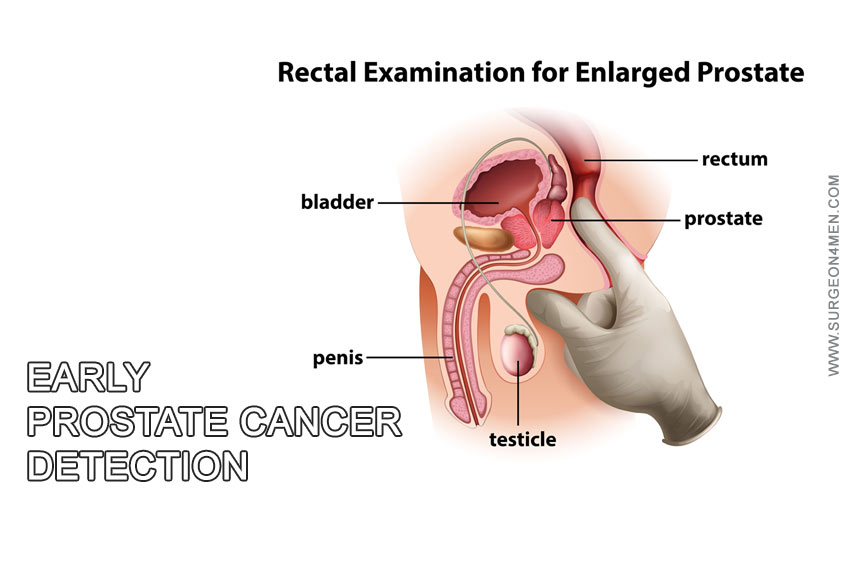Early Prostate Cancer Detection
Early detection of prostate cancer significantly raises the chances of cure while reducing the risk factor considerably. Screening is one of the best ways to detect cancer of the prostate at an early stage. This is important as patients have a better prognosis in this stage. In fact, if we go by statistics, screening is credited for reducing the risk of death from prostate cancer by almost one third, thus saving the life of almost 10,000 sufferers in 2010.
This screening procedure involves inserting a lubricated finger into the rectum to feel any changes in the prostate gland. A DRE is used to assess texture of the back of prostate and diagnose if there are any bumps or hard growth that might be cancer. The exam may also be used to determine if the disease has spread to other tissues.
PSA Screening
The blood test is done to measure the amount of protein released in the blood. Higher Prostate Specific Antigen levels are often an indication of cancer. PSA is considered the best indicator for early prostate cancer detection.
The PSA test is an important tool to diagnose prostate cancer.
If the screening tests confirm prostate cancer, then there are higher chances of treatment. Since the use of early prostate cancer detection tests became widespread in the United States, death rate from such cancer has dropped significantly.
Screening and Biopsy
- PSA velocity
- Lower vs. higher free PSA test
- PSA per volume of prostate
- Ethnicity
- Family history
- Digital rectal exam results
- Prior biopsy findings
The risk of cancer is higher if the test confirms a lower percentage of free PSA or higher PSA velocity and density.
Prevention of Prostate Cancer
While early prostate cancer detection may help in its cure, eating a healthy balanced diet, rich in fruits and vegetables and low in fat and dairy products, holds the key to lowering your risk of the disease. Further, it might help to eat more of plant food than animal fat, including butter, lard, and meat.
Adding omega-3 fatty acids to your diet may help reduce the prostate cancer risk. Eating fatty fish, including tuna, salmon, and herring, is recommended for men with such cancer. You can also add omega-3s to your regular diet through flaxseed.
